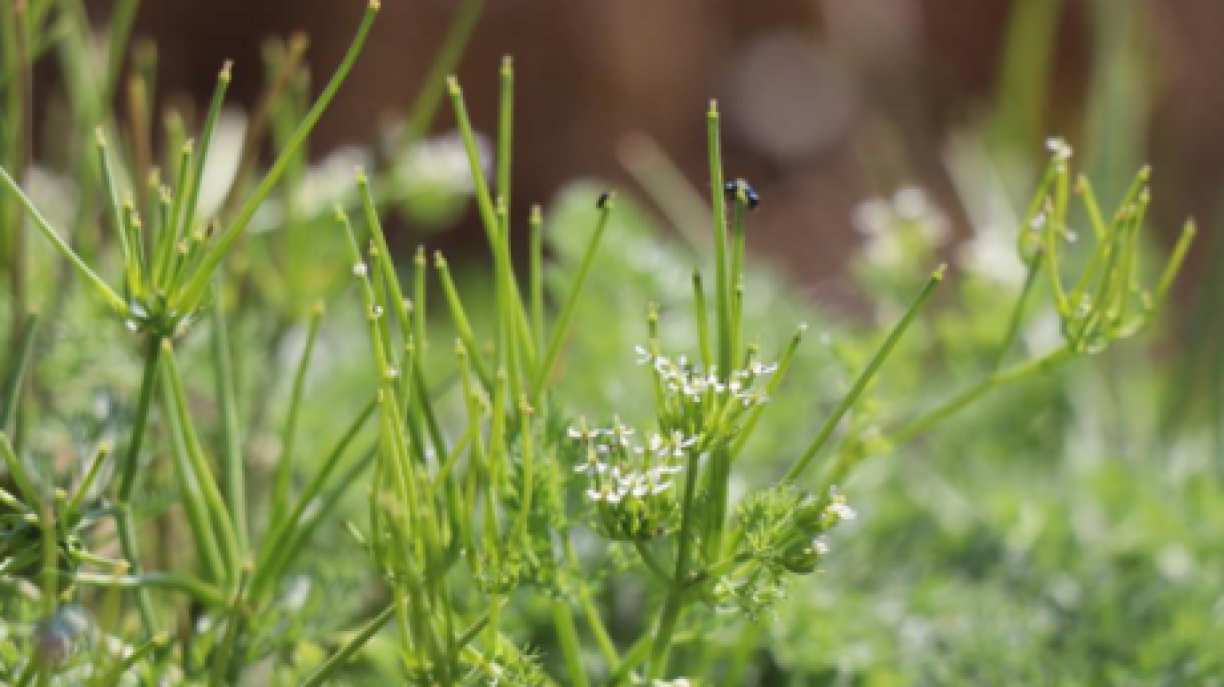
The Venus comb (Scandix pecten-veneris), a delicate arable plant thought to be extinct in Luxembourg since 1963, has reappeared. More than 100 plants were counted during recent field surveys, a sign not of a fleeting presence, but of a stable population, according to a press release by the SIAS.
According to the press release, the Venus comb belongs to the traditional “segetal” species: wild herbs that grow among cereal crops such as wheat and barley.
Once common in the Moselle region, it disappeared as intensive agriculture advanced. In the press release, Cédric Godart, environmental biologist at the SIAS Biological Station, welcomed the find but cautioned against complacency. He stated that almost half of Luxembourg’s arable wild plants remain threatened or extinct. Many insects and birds depend on them, he explained, which makes their protection crucial for wider biodiversity.
To give the Venus comb a chance to spread, SIAS is now collecting seeds and reintroducing them to suitable sites as part of a national conservation strategy. Local populations of the plant will also be safeguarded directly through targeted protection schemes, according to the press release.
The press release also explains that this summer brought further surprises: in Schuttrange, botanists identified yellow crownvetch (Coronilla scorpioides), a Mediterranean species never before recorded in Luxembourg. In Stadtbredimus, hare’s ear mustard (Conringia orientalis) was observed for the first time in decades.
The SIAS explain further in the press release that these finds highlight the importance of systematic surveys of open landscapes.
The press release concludes with the clarification that these finds are carried out within the framework of the national Nature Pact, with municipalities such as Mondorf-les-Bains, Schuttrange, and Stadtbredimus working under the SIAS to promote sustainability and nature protection.